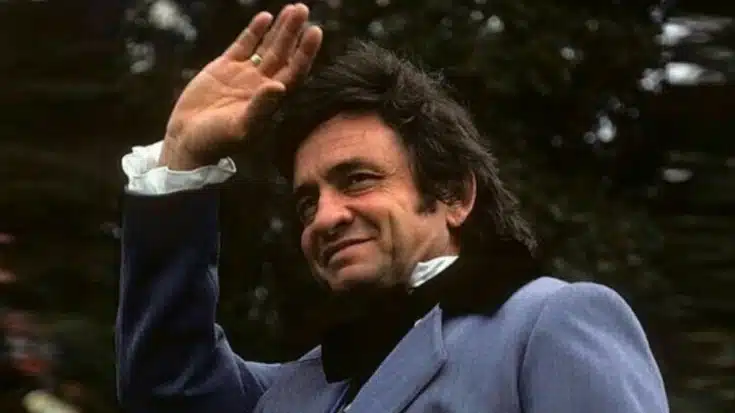The Life Journey Of Johnny Cash

via @johnraycash / Instagram
There are voices that entertain, and then there are voices that seem to echo through the soul of a nation. Johnny Cash had one of the latter. Deep, unmistakable, and raw, his voice carried more than melody—it carried memory, pain, defiance, and redemption. Through decades of changing musical tastes, his sound remained rooted in something timeless.
Cash’s story isn’t just about fame or records sold. It’s a story of resilience, of a man who rose from humble beginnings and personal tragedies to speak on behalf of the unheard. Whether performing for inmates or royalty, he never lost the grit or honesty that made his songs feel like personal confessions. His journey was shaped as much by loss and struggle as it was by applause and success.
Today, Johnny Cash is remembered not just for what he sang, but for how he lived. His life was a testament to the idea that even the darkest paths can lead to light, and that music—at its most powerful—is a lifeline. To walk through the life of Johnny Cash is to understand more than just a man; it is to glimpse into the heart of American music itself.
Humble Beginnings in Arkansas
Johnny Cash was born on February 26, 1932, in the small town of Kingsland, Arkansas. He was one of several children born to Carrie and Ray Cash, a hardworking family who lived through the challenges of the Great Depression. Growing up in Dyess, a government settlement created for struggling families, Johnny experienced poverty firsthand, which would later inform the emotional depth of his music.
From a young age, music became a refuge for Cash. Listening to country tunes on the radio, he found comfort in melody and lyric. By the time he was 12, he was already writing songs of his own, showing an early passion and natural talent for storytelling through music. These formative years planted the seeds of a voice that would eventually speak to millions.
One of the defining tragedies of his childhood was the death of his older brother Jack, who was fatally injured in a sawmill accident when Johnny was just 15. This traumatic loss had a profound impact on him. He later reflected on how the songs they sang at Jack’s funeral continued to guide him throughout life, offering healing and a way to navigate through grief and darkness.
View this post on Instagram
Rising from Rejection to Recognition
Cash’s official entry into the music world didn’t come easily. After serving in the Air Force, he moved to Memphis, Tennessee, where he aimed to land a recording deal. His initial audition with Sam Phillips of Sun Records didn’t go well—Phillips was unimpressed with Cash’s gospel songs and turned him down. But Cash didn’t give up.
Determined to break through, he returned with a song he had written called “Hey Porter,” which had a more commercial appeal. This time, Phillips saw the potential and offered him a recording contract. Soon after, “Hey Porter” hit the airwaves and reached No. 14 on the country charts. This marked the beginning of a long and prolific career.
Sun Records became the launchpad for Cash’s rise to stardom. He joined the label’s legendary roster alongside artists like Elvis Presley and Jerry Lee Lewis. With his deep baritone and stripped-down musical style, he stood out immediately. Songs like “Folsom Prison Blues” captured audiences with their raw storytelling and gritty realism.
The Man in Black’s Music and Identity
Johnny Cash’s image became nearly as iconic as his music. Dressed in black, he stood as a symbol of the downtrodden and misunderstood. His music spanned genres—he was equally at home in country, rock, folk, and gospel. This versatility helped him connect with a wide range of listeners, from prisoners to presidents.
His 1968 live performance at Folsom State Prison became one of his most legendary moments. Singing for inmates, he not only reaffirmed his outlaw persona but also showed his compassion for the marginalized. The album that resulted from that performance was a critical and commercial success, further cementing his place in music history.
Cash’s work consistently reflected themes of redemption, sorrow, and faith. Even as he battled personal demons, including struggles with addiction, he never lost sight of the deeper messages in his songs. His ability to combine moral conviction with musical brilliance made him a rare and enduring voice in American music.
View this post on Instagram
A Love Story and a Final Masterpiece
Johnny’s love story with fellow musician June Carter was as public as it was heartfelt. Their partnership, both personal and professional, became a defining element of Cash’s later life. Together, they toured, recorded duets, and supported each other through highs and lows. June’s presence helped stabilize Cash during some of his most troubled years.
In 2002, Cash recorded a cover of Nine Inch Nails’ “Hurt,” included in his album American IV: The Man Comes Around. The song—and its haunting music video—offered a raw reflection of pain, aging, and loss. It resonated deeply with audiences and introduced his artistry to a new generation. June appears briefly in the video, adding to its emotional weight.
Tragically, June Carter Cash passed away in May 2003 following heart surgery. Devastated, Johnny followed her just four months later, passing on September 12 due to complications from diabetes. Their deaths, so close together, seemed to affirm the deep connection they shared—a bond that neither time nor tragedy could break.
Legacy of the Man in Black
Even after his passing, Johnny Cash’s influence continues to grow. In 1999, he received the Grammy Lifetime Achievement Award, and his life became the subject of the Oscar-winning film Walk the Line. These honors reflected not just his musical contributions, but his unique place in the cultural and emotional landscape of America.
Artists across genres—from rock to rap to country—cite him as a major influence. His ability to convey deep truths with simplicity and sincerity is something many aspire to but few achieve. His music transcends eras, with songs like “Ring of Fire” and “I Walk the Line” still resonating with new listeners decades after they were recorded.
Perhaps the most poignant tribute came from Bob Dylan, who called Cash a mirror of mortality and a musical prophet. Dylan believed that Cash’s voice carried the soul of America—its pain, its resilience, its faith. For generations past and those yet to come, the Man in Black will continue to sing.














